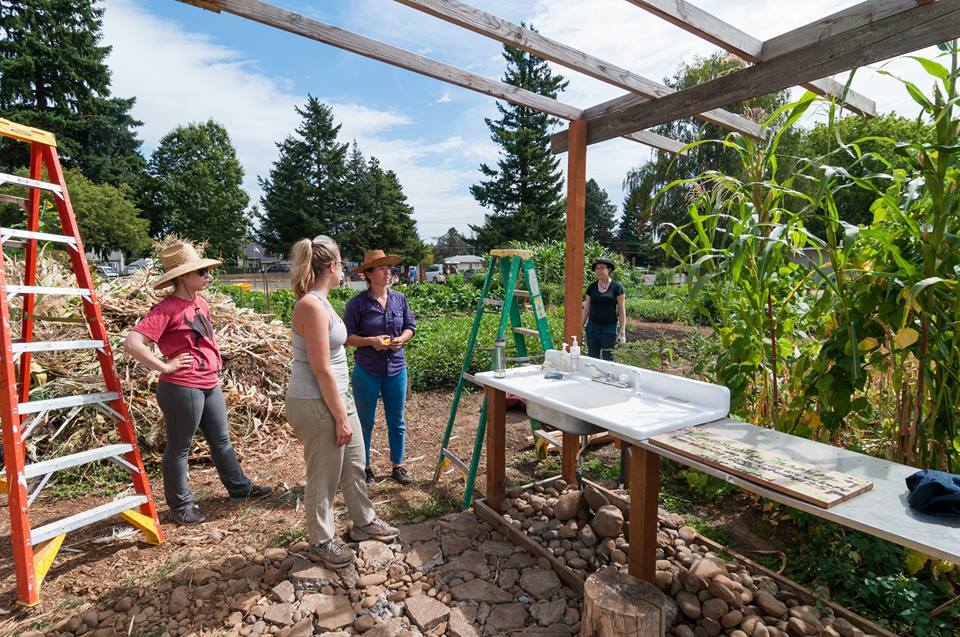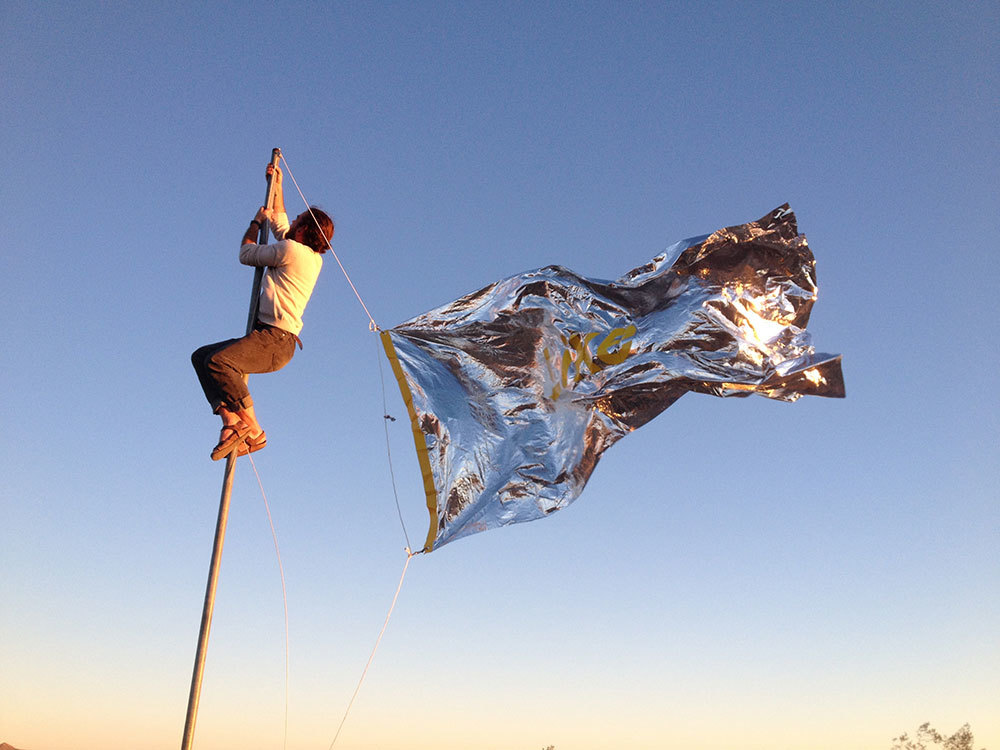Curriculum
Our curriculum connects the head, hand and heart to materials, making processes, entrepreneurial strategies, and social and environmental engagement. We often ask, how can our work be in service to others?
- Year One
- Year Two
Fall
| Course | Credits |
|---|---|
| Graduate Studio I | 6 |
| Graduate Critique I | 3 |
| Contemporary Craft & Design History | 3 |
| Elective | 3 |
Spring
| Course | Credits |
|---|---|
| Graduate Studio II | 6 |
| Graduate Critique II | 3 |
| Creative Entrepreneurship I | 3 |
| Theory of the Object | 3 |
Fall
| Course |
|---|
| Graduate Critique III |
| Graduate Studio III |
| Creative Entrepreneurship II |
| Thesis I: Research |
Spring
| Course |
|---|
| Graduate Studio IV |
| Graduate Critique IV |
| Thesis II: Writing |
| Elective |
Learning Outcomes
Produce works with a strong point of view and an applied purpose.
Establish a studio practice focused on ideas, materials and the process of making that is responsive to change.
Develop entrepreneurial strategies that support a self-sustaining creative practice sensitive to social and environmental concerns.
Position themselves and their work within the overlap of the disciplines and professions of craft and design.
Course Descriptions
Graduate Critique
In Graduate Critique, students engage in a thorough analysis of their work and the work of others. This class provides candidates with an intellectual community and critical forum to test, temper, and enlarge the ideas that underlie their creative goals. Frequent discussions and critiques with visiting artists, designers and guest critics help students develop the language that surrounds their practice. In Graduate Critique, students will engage in thorough, critical analysis of finished work and benefit from in-depth exposure to the wide variety of disciplines represented in the Program.
Studio Practice
With students' individual spaces located in a workshop environment, the AC+D program embraces an approach to design rooted in the culture of making the community of craft and emphasizes learning from materials to ground concepts. This learning happens through making and dedication to a minimum of 18 hours of independently lead studio work supported through weekly hour mentor meetings. The mentor-student relationship is personal and unique and is at the heart of the MFA in Applied Craft and Design program. The mentor acts as an advocate, critic, resource, and colleague for the student, providing a supportive setting to pursue self-designed, independent investigation and experimentation. Mentors come from a group of accomplished artists, designers, makers, and faculty.
Contemporary Craft + Design History
Contemporary Craft + Design History provides students with an in-depth understanding of the issues related to contemporary craft and design history. The course focuses on a series of themes in the discipline’s histories, as well as critiquing and redressing the historical biases and exclusions of the discipline. The course emphasizes a careful engagement with key individuals and movements rather than a comprehensive survey. In this way, students focus not only on the history of these fields but on the critical assessment of what frames them
Creative Entrepreneurship
The Creative Entrepreneurship course is situated to support students in redefining the priorities of capitalism in favor of a more just and humane society while envisioning a sustaining creative practice and business. The course introduces students to multiple pathways that create a sustainable approach to professional life that is responsive to change and led by their own values and ethics. The course provides students with frameworks, knowledge, and strategies to build a sustainable career or business as a craftsperson and designer.
The course covers aspects of starting and maintaining your own business, future planning, goal setting, identifying and working with customers and clients, project management, promoting your business through storytelling, a wide array of business structures, filing taxes, copyright law, creating and negotiating contracts, pricing and selling work and more.
The course content includes lectures, discussions, guest speakers, presentations and critiques along with visiting makers that run business at all levels (just starting, mid career and advanced career) to hear how they are making it work!
Theory of the Object
The Theory of the Object class attempts to understand what an object is and how we interact with them. Objects are studied through the lens of multiple disciplines. This course will prepare students to articulate why objects matter and what role objects and object makers play in the world today. Through this course students develop a critical point of view that guides their studio practice and making. This course helps students connect theory and practice in their work and the work of others.
Thesis Research + Writing
The Thesis Research and Writing are a two part class that supports students in the process of in-depth practice based researching writing connected to their Thesis. The Thesis emphasizes a practical application of knowledge or skill in a new way. At the end of the two courses students will produce a Thesis project and paper that is understood in relation to its cultural context as well as the student’s career path.
Electives
Electives allow students to hone techniques in making, participate in internships, global studios, or further pursue courses in history, theory, and criticism. Students are required to take two electives during their time in the program. Graduate level electives include Applied Systems Thinking, Styles of Facilitation and Collaboration, Critical Pedagogy, Critical Theory, Creative Writing among others.
Curricular Themes
Each semester in the MFA Applied Craft + Design program we focus on vital themes that make a lifelong creative practice viable. These themes are explored within AC+D’s curriculum through making, collaboration and iteration.
Semester 1
PRACTICE
PROCESS - HABIT - RHYTHM
Establishing a productive + rigorous creative, iterative practice.
Go wild. Look far and wide, produce in abundance. Emphasize disciplined continuous making, physical embodiment of ideas, thinking with the hands.
Semester 2
VOICE
NARRATIVE - MATERIALS - IDENTITY
Identifying + elaborating upon what you bring to your material(s).
Focus on your relationship with materials and processes, and develop this dialogue. Articulate what it is about how you use materials and explore processes that bring specificity to your work.
Semester 3
ECOSYSTEM
PEOPLE - THINGS
Audience, viewer, user, communities, environment, non-human. Addressing who + what is served by your practice.
Analyze the system you and your work operates in and the dynamics at play. Understand, apply and draw connections between your work and its context.
Semester 4
VISION
DIRECTION - ACTUALIZATION - APPLICATION
Fulfilling the promise of your work.
Realize a major project, the Thesis. Establish a decision-making process that is responsive to change, that you can communicate, and that can be generalized to your practice after you graduate. Challenge yourself to develop rhetoric regarding the importance in the world today.
Opportunities
Design Build

Designers in education and industry routinely and assuredly assert that design thinking strategies can deliver the “game-changing” ideas needed to address the critical and complex problems of our times. Frequently, however, it seems we’re seduced by, and fall in love with the promise(s) of these ideas and are less committed to following through with their actual realization with the same degree of passion.
To provide an alternative design and craft education and practice model, the Applied Craft + Design students can take an elective focused on a community project with a real-world outcome. During the Design Build, students meet with the community and clients to identify goals and needs for the project, collaboratively brainstorm possible solutions and consider the material and budget limitations. The project culminates with the collective fabrication and installation of a finalized product.
High Desert Field Trips

AC+D puts curriculum into practice with an immersive trip to the High Desert California for communal, unmediated, radical, and unplugged experiences. This experience expands and builds upon students’ knowledge while connecting them to people and places outside of Oregon to provide bursts of inspiration that they then inject into their studio practice. Our trip to the desert features workshops, studio visits, and site visits that are all in response to the surrounding landscapes, which result in aesthetics influenced by nomadic countercultures.
While in the high desert, we visit A-Z West, High Desert Test Sites, BoxoProjects, All Roads Studio, Dan Anderson, Outpost Projects, Yucca Valley Material Lab, High Desert Observatory, Noah Purifoy & Outdoor Museum, Sky Village Swap Meet, Krblin Jihn Kabin Cabin, World Famous Crochet Museum, Simi Dabah Sculpture Park and the Joshua Tree National Park.
Questions?
Reach out to MFA in Applied Craft + Design Program Chair, Sara Huston, to schedule a tour or to learn more about the program.
Get in touch